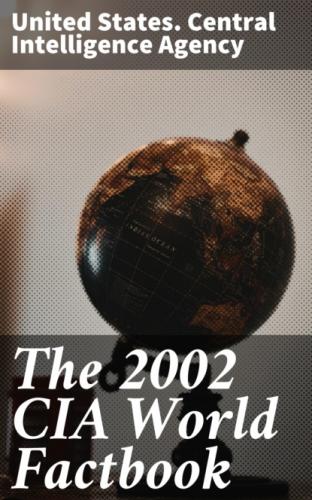This page was last updated on 1 January 2002
========================================================================
Armenia
Introduction
Armenia
Background: An Armenian Apostolic Christian country, Armenia was incorporated into Russia in 1828 and the USSR in 1920. Armenian leaders remain preoccupied by the long conflict with Azerbaijan over Nagorno-Karabakh, a primarily Armenian-populated region, assigned to Soviet Azerbaijan in the 1920s by Moscow. Armenia and Azerbaijan began fighting over the area in 1988; the struggle escalated after both countries attained independence from the Soviet Union in 1991. By May 1994, when a cease-fire took hold, Armenian forces held not only Nagorno-Karabakh but also a significant portion of Azerbaijan proper. The economies of both sides have been hurt by their inability to make substantial progress toward a peaceful resolution.
Geography Armenia
Location: Southwestern Asia, east of Turkey
Geographic coordinates: 40 00 N, 45 00 E
Map references: Asia
Area: total: 29,800 sq km water: 1,400 sq km land: 28,400 sq km
Area - comparative: slightly smaller than Maryland
Land boundaries: total: 1,254 km border countries: Azerbaijan-proper 566 km, Azerbaijan-Naxcivan exclave 221 km, Georgia 164 km, Iran 35 km, Turkey 268 km
Coastline: 0 km (landlocked)
Maritime claims: none (landlocked)
Climate: highland continental, hot summers, cold winters
Terrain: Armenian Highland with mountains; little forest land; fast flowing rivers; good soil in Aras River valley
Elevation extremes: lowest point: Debed River 400 m highest point:
Aragats Lerrnagagat' 4,090 m
Natural resources: small deposits of gold, copper, molybdenum, zinc, alumina
Land use: arable land: 18% permanent crops: 2% other: 80% (1998 est.)
Irrigated land: 2,870 sq km (1998 est.)
Natural hazards: occasionally severe earthquakes; droughts
Environment - current issues: soil pollution from toxic chemicals such as DDT; energy blockade, the result of conflict with Azerbaijan and disagreements with Turkey, has led to deforestation when citizens scavenged for firewood; pollution of Hrazdan (Razdan) and Aras Rivers; the draining of Sevana Lich (Lake Sevan), a result of its use as a source for hydropower, threatens drinking water supplies; restart of Metsamor nuclear power plant in spite of its location in a seismically-active zone
Environment - international agreements: party to: Air Pollution,
Biodiversity, Climate Change, Desertification, Hazardous Wastes, Nuclear
Test Ban, Ozone Layer Protection, Wetlands signed, but not ratified:
Air Pollution-Persistent Organic Pollutants
Geography - note: landlocked in the Lesser Caucasus Mountains; Sevana
Lich (Lake Sevan) is the largest lake in this mountain range
People Armenia
Population: 3,330,099 note: Armenia's first census since independence was conducted in October 2001, but official figures have not yet been released (July 2002 est.)
Age structure: 0-14 years: 22.2% (male 374,597; female 363,115) 15-64 years: 67.7% (male 1,104,100; female 1,150,282) 65 years and over: 10.1% (male 141,330; female 196,675) (2002 est.)
Population growth rate: -0.15% (2002 est.)
Birth rate: 12 births/1,000 population (2002 est.)
Death rate: 9.94 deaths/1,000 population (2002 est.)
Net migration rate: -3.51 migrant(s)/1,000 population (2002 est.)
Sex ratio: at birth: 1.05 male(s)/female under 15 years: 1.03 male(s)/female 15-64 years: 0.96 male(s)/female 65 years and over: 0.72 male(s)/female total population: 0.95 male(s)/female (2002 est.)
Infant mortality rate: 41.07 deaths/1,000 live births (2002 est.)
Life expectancy at birth: 71.12 years (2002 est.) male: Total fertility rate: 1.53 children born/woman (2002 est.)
HIV/AIDS - adult prevalence rate: 0.01% (1999 est.)
HIV/AIDS - people living with HIV/AIDS: less than 500 (1999 est.)
HIV/AIDS - deaths: less than 100 (1999 est.)
Nationality: noun: Armenian(s) adjective: Armenian
Ethnic groups: Armenian 93%, Azeri 3%, Russian 2%, other (mostly Yezidi Kurds) 2% (1989) note: as of the end of 1993, virtually all Azeris had emigrated from Armenia
Religions: Armenian Apostolic 94%, other Christian 4%, Yezidi
(Zoroastrian/animist) 2%
Languages: Armenian 96%, Russian 2%, other 2%
Literacy: definition: age 15 and over can read and write total population: 99% male: 99% female: 98% (1989 est.)
Government Armenia
Country name: Republic of Armenia conventional short form: Republic;
Armenian Republic local long form: Hayastani Hanrapetut'yun
Government type: republic
Capital: Yerevan
Administrative divisions: 11 provinces (marzer, singular - marz);
Aragatsotn, Ararat, Armavir, Geghark'unik', Kotayk', Lorri, Shirak,
Syunik', Tavush, Vayots' Dzor, Yerevan
Independence: 21 September 1991 (from Soviet Union)
National holiday: Independence Day, 21 September (1991)
Constitution: adopted by nationwide referendum 5 July 1995
Legal system: based on civil law system
Suffrage: 18 years of age; universal
Executive branch: chief of state: President Robert KOCHARIAN (since 30 March 1998) head of Prime Minister Andranik MARKARYAN (since 12 May 2000) cabinet: elected by popular vote for a five-year term; special election last held 30 March 1998 (next to be held NA March 2003); prime minister appointed by the president election results: Robert KOCHARIAN elected president; percent of vote - Robert KOCHARIAN 59.5%, Karen DEMIRCHYAN 40.5%
Legislative branch: unicameral National Assembly (Parliament) or Azgayin Zhoghov (131 seats; members elected by popular vote to serve four-year terms) elections: results: percent of vote by party - NA%; seats by party - Unity Bloc 61 (Republican Party 41, People's Party of Armenia 20), Stability Group (independent Armenian deputies who have formed a bloc) 21, ACP 10, ARF (Dashnak) 8, Law and Unity Party 7, NDU 6, Law-Governed Party 6, independents 10, unfilled 2; note - seats by party change frequently
Judicial branch: Supreme Court; Constitutional Court
Political parties and leaders: Agro-Technical People's Group
(formerly Stability Group) [Hmayk HOVHANISSIAN]; Armenian Communist
Party or ACP [Vladimir DARBINYAN]; Armenia Democratic Party [Armen
SARGSIAN]; Armenian Revolutionary Federation ("Dashnak" Party) or ARF
[Hrant MARKARYAN]; Christian Democratic Union or CDU [Azat ARSHAKYN,
chairman]; Constitutional Rights Union [Hrant KHACHATRYAN]; Democratic
Liberal Party/Ramkvar Azatakyan or DL/RA [Ruben MIRZAKHANIAN, chairman];
Law and Unity Party [Artashes GEGAMIAN,
